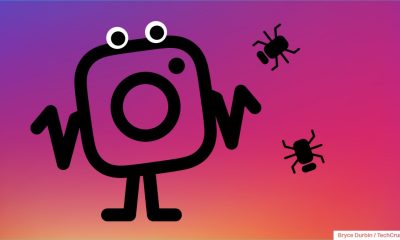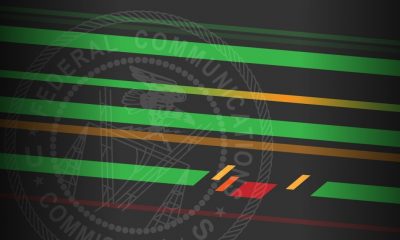Entertainment
People are accusing Instagram of shadowbanning content about Palestine
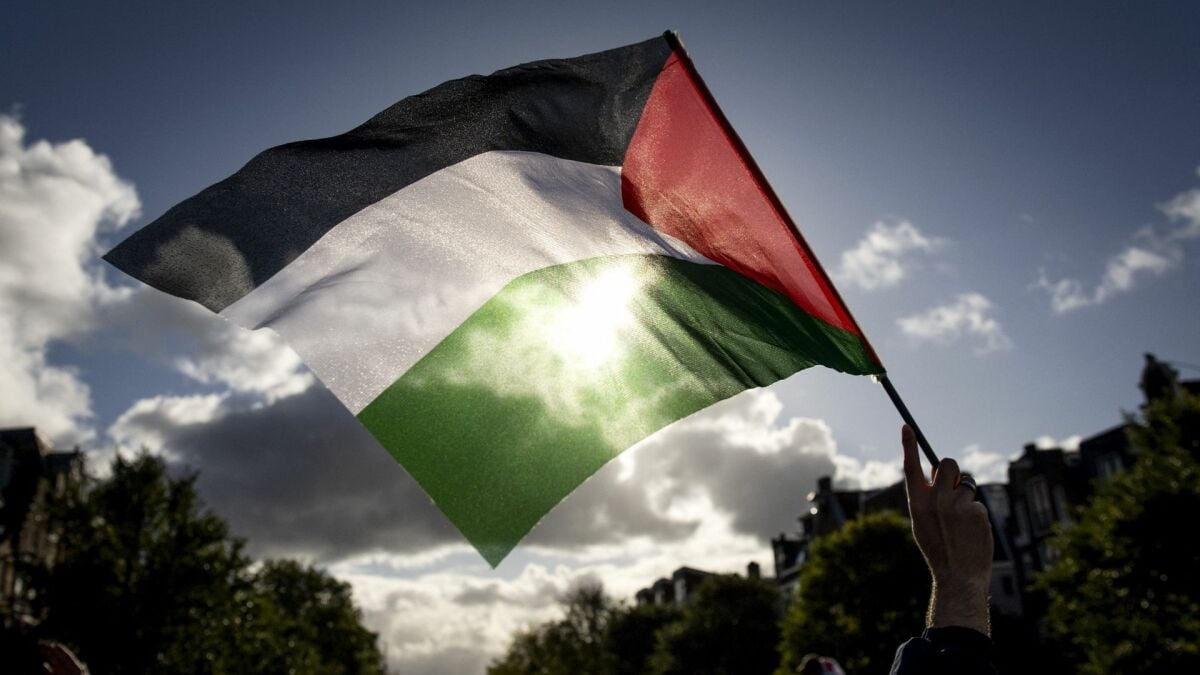
On Oct. 7, the militant group Hamas orchestrated a terrorist attack in Israel. In the days following, Israel retaliated; now, the region is facing a full-blown war. People are fleeing, circumstances in Gaza have been described as unprecedented and catastrophic, and death tolls are rising.
Across social media, a slew of information is being shared — and while some of it is undoubtedly disinformation and fake news, there are factual accounts concerning Gaza being posted too. And it is these pro-Palestinian posts that are allegedly being shadowbanned and censored on Instagram, say a crop of users.
The term shadowbanning refers to covert actions used to limit a post’s visibility on a social media platform. As Mashable’s Anna Iovine writes, this applies to “content that isn’t recommended on the Explore page, Feed, Reels; sometimes, shadowbanned means not being able to be found through Search, either.”
Meta responded to the accusations of shadowbanning over the weekend. Andy Stone, the company’s communications director at Meta, released a statement on X, chalking up the visibility issue to “a bug effecting all stories that re-shared Reels and Feed posts.”
“This bug affected accounts equally around the globe and had nothing to do with the subject matter of the content - and we fixed it as quickly as possible,” wrote Stone on Oct. 15. When asked to provide a comment for this article, Instagram directed Mashable to said statement.
Mashable spoke to several Instagram users who claim their posts promoting awareness about the situation in Gaza have received significantly low engagement, or in other words, have been shadowbanned. Jess White, for example, took to Instagram to repost a poem by a Palestinian writer on her story. The poem in question spoke to the lives and deaths of children during wartime. White says she was “definitely shadowbanned.”
“I usually get 1,000 views on Stories and had only three views in 10 minutes when I shared a post that had the location as Gaza,” she tells Mashable. “When I posted something unrelated afterward a few hours later, the views went up.”
White isn’t alone. Across Twitter and Instagram itself, people called out the latter for allegedly censoring their content. One user, who wants to remain anonymous, told Mashable that after posting pro-Palestinian content (most of which got very little engagement), she was unable to post Stories on her account for a full day. Another user says that links to provide donations to Gaza or charities supporting Palestinians appeared broken and inaccessible. Yet another says, “My account is private, but I noticed a massive dip between Stories about the current conflict and regular snaps and postings.”
Tweet may have been deleted
Tweet may have been deleted
Tweet may have been deleted
When asked if they approached Instagram to address the issue, one user told Mashable, “I didn’t reach out to [them] because I honestly don’t trust them. They wouldn’t have done anything anyway.” In June of this year, Instagram attempted to address and debunk shadowbans again, telling the app’s community, “If anything makes your content less visible, you should know about it and be able to appeal.”
Adam Mosseri, the head of Instagram, recently commented that Instagram isn’t “anti-news” but that the company does “try not to lean too hard into news.” Mosseri made these remarks when answering why Instagram won’t allow clickable links in posts.
Several influencers and accounts have said they have had to use roundabout tactics to ensure visibility on Instagram, such as including hashtags promoting Israel. When doing so, pro-Palestinian posts are viewed significantly more, some say. For instance, environmental activist and author Mikaela Loach posted about Palestine but used asterisk symbols in the word to not impact her visibility. Entrepreneur and model Jessica Kahawaty alerted followers to such strategies, writing in her Story, “You can also put GIFs of the Israeli flag in the background [of Stories] to boost your algorithm.” Nol Collective, a Palestinian fashion collective, posted about shadowbanning on their account, urging followers to screenshot posts about Palestine as opposed to directly sharing them on Stories.
Zehra Khan, another Instagram user, says she and her friends noticed a “significant decrease in the viewership of posts” and Instagram Stories. Khan said this applied to various pieces of content they tried to post, from footage of “a peaceful Palestine protest” over the weekend to a UNICEF infographic demanding safe access for children in Gaza. Some of these Stories reportedly received only one or two views after up to seven hours. Khan said her feed has been inundated with accounts she usually doesn’t interact with, but when it comes to the accounts posting pro-Palestine content — including those of her closest friends — she had to “manually search” to access their Stories and posts.
…this applied to various pieces of content they tried to post, from footage of “a peaceful Palestine protest” from the weekend to a UNICEF infographic demanding safe access for children in Gaza.
None of the content being allegedly shadowbanned called for harm or violence; instead, as Khan puts it, the posts in question largely relate to “the humanitarian catastrophe taking place in Gaza.”
“The fact that this level of censorship goes as far as shadowbanning non-political calls for humanitarian help is shocking,” says Khan.
Meta, in addition to platforms like TikTok and X, has clarified its position on content moderation to ensure the safety of users amid the current war. Elon Musk, the current owner of X, is under scrutiny for directing followers to accounts perpetuating misinformation about the conflict, and his platform is facing investigation for the same. Meta has said it is closely monitoring its platforms, removing violent or disturbing content relating to the war.
Tweet may have been deleted
Since the attack on Israel this month, Meta says it has removed 795,000 pieces of content in Hebrew and Arabic for violating their policies concerning graphic content, hate speech, and incitement. However, users aren’t entirely convinced of Meta’s reasoning behind shadowbanning pro-Palestinian content. This is perhaps because now isn’t the first time Meta has been questioned for this kind of censorship. In April 2022, Palestinian-Dutch model Bella Hadid made headlines for accusing Instagram of shadowbanning her posts and “disabling” her account from posting at all, writing, “When I post about Palestine I get immediately shadow banned and almost 1 million less of you see my stories and posts.”
That same month, several pro-Palestinian activists came forward with similar stories, with many claiming their posts criticizing the Israeli government or about attacks on Palestinians were hidden from followers. “I have almost 100,000 followers, but my story views are barely 10,000,” Palestinian YouTuber Adnan Barq told Dazed in May 2022. “Instagram also keeps marking my content as ‘sensitive’ for no reason and I’ve been told that people are unable to share my posts.”
But users aren’t entirely convinced of Meta’s reasoning, perhaps because this isn’t the first time Meta has been questioned for this kind of censorship.
Following the recent escalation of conflict between Israel and Hamas, a collective of human rights and civil society organizations released a joint statement targeting tech businesses. Amongst these organizations are 7amleh (The Arab Center for the Advancement of Social Media), Jewish Voice for Peace (JVP), American Muslims for Palestine (AMP), and the European Legal Support Center (ELSC). While asking to protect users from violent or discriminatory posts, the group also wrote that it is “concerned about significant and disproportionate censorship of Palestinian voices.”
“Social media businesses must ensure the respect and protection of Palestinian voices on their platforms, just as they should for every citizen worldwide, especially those who document human rights violations,” read the statement, adding that such censorship takes place through actions such as “content takedowns and hiding hashtags.”
Signatories like ELSC and 7amleh are calling for social media users to report if any such incidents, like the repression or banning of Palestinian advocacy-related content, take place.
When it comes to shadowbanning, users know it’s hard to prove entirely. But in the same breath, many are wholly aware that their content has been disproportionately targeted since the start of this conflict. While Meta has claimed to resolve the issue, time will tell if pro-Palestinian content obtains the visibility and treatment other content receives.
-
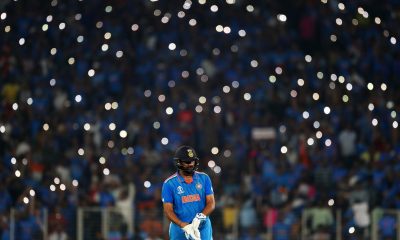
 Business6 days ago
Business6 days agoIndia-Pakistan cricket match helps Disney’s Hotstar set global streaming record
-

 Entertainment7 days ago
Entertainment7 days ago‘Ouija: Origin of Evil’ Easter egg spotted in Mike Flanagan’s ‘The Fall of the House of Usher’
-

 Business6 days ago
Business6 days agoThe SBF trial continues, Atlassian acquires Loom, and OpenAI explores making its own chips
-
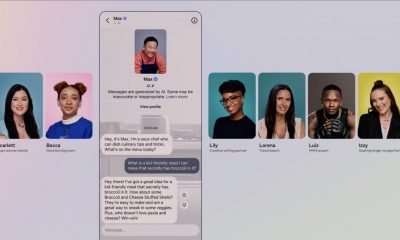
 Entertainment6 days ago
Entertainment6 days agoChatting with Meta’s dystopian AI personas leaves more questions than answers
-

 Entertainment6 days ago
Entertainment6 days agoThese tiny ‘Fall of the House of Usher’ clues give away how each of the children die
-

 Entertainment6 days ago
Entertainment6 days ago‘The Fall of the House of Usher’: The most WTF moments
-

 Business6 days ago
Business6 days agoBlue checks aren’t protecting sex workers from X’s porn crackdown
-
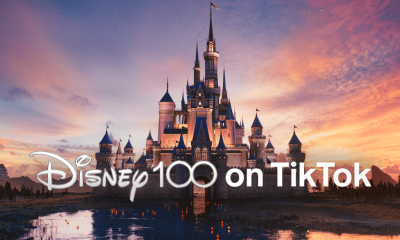
 Business7 days ago
Business7 days agoTikTok scores sizable Disney deal including a content hub and publisher partnership



